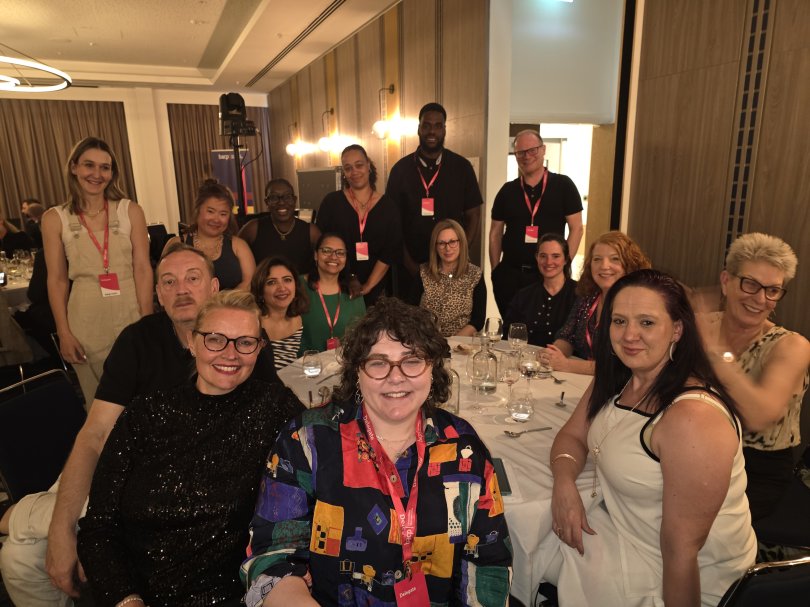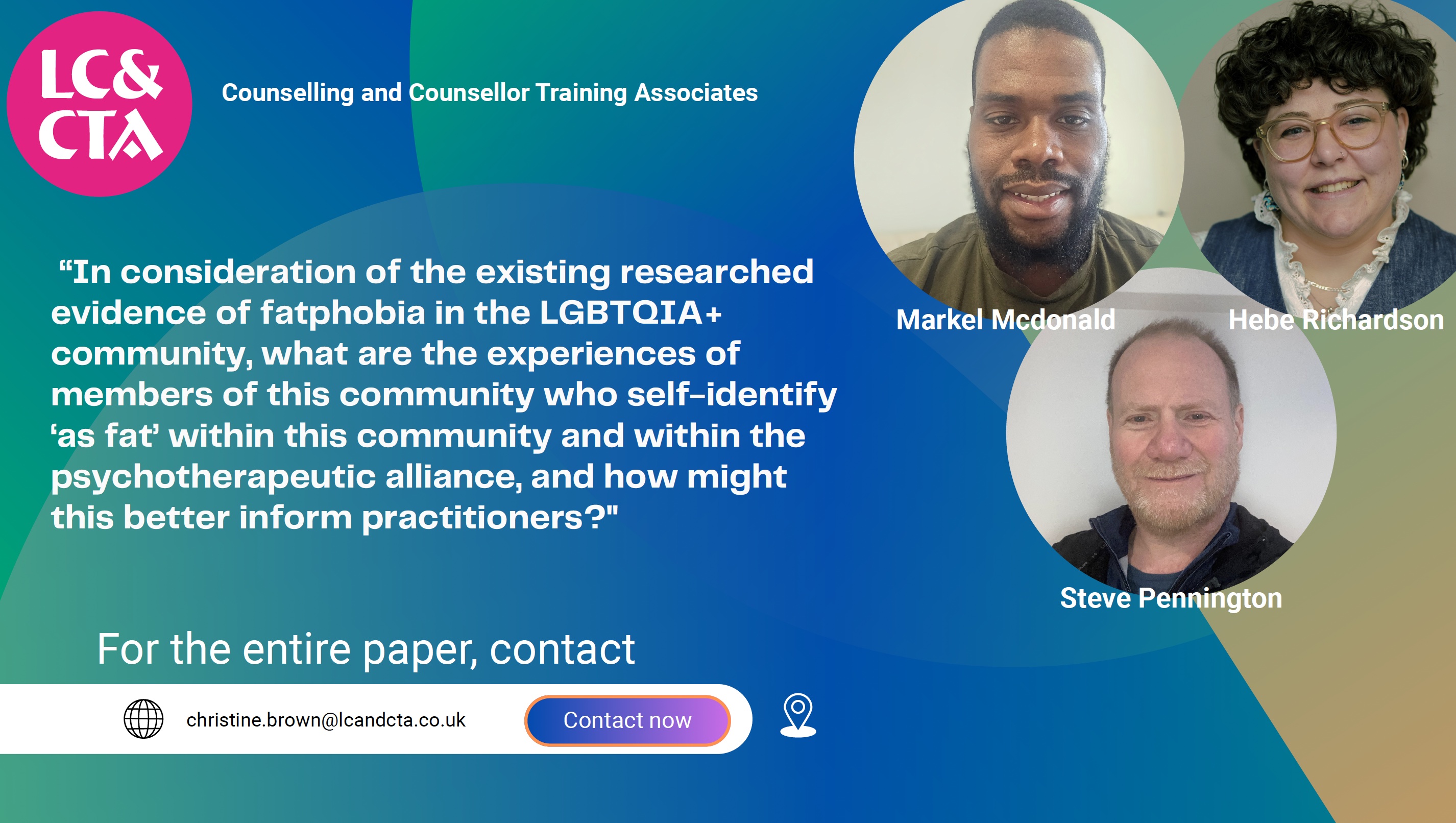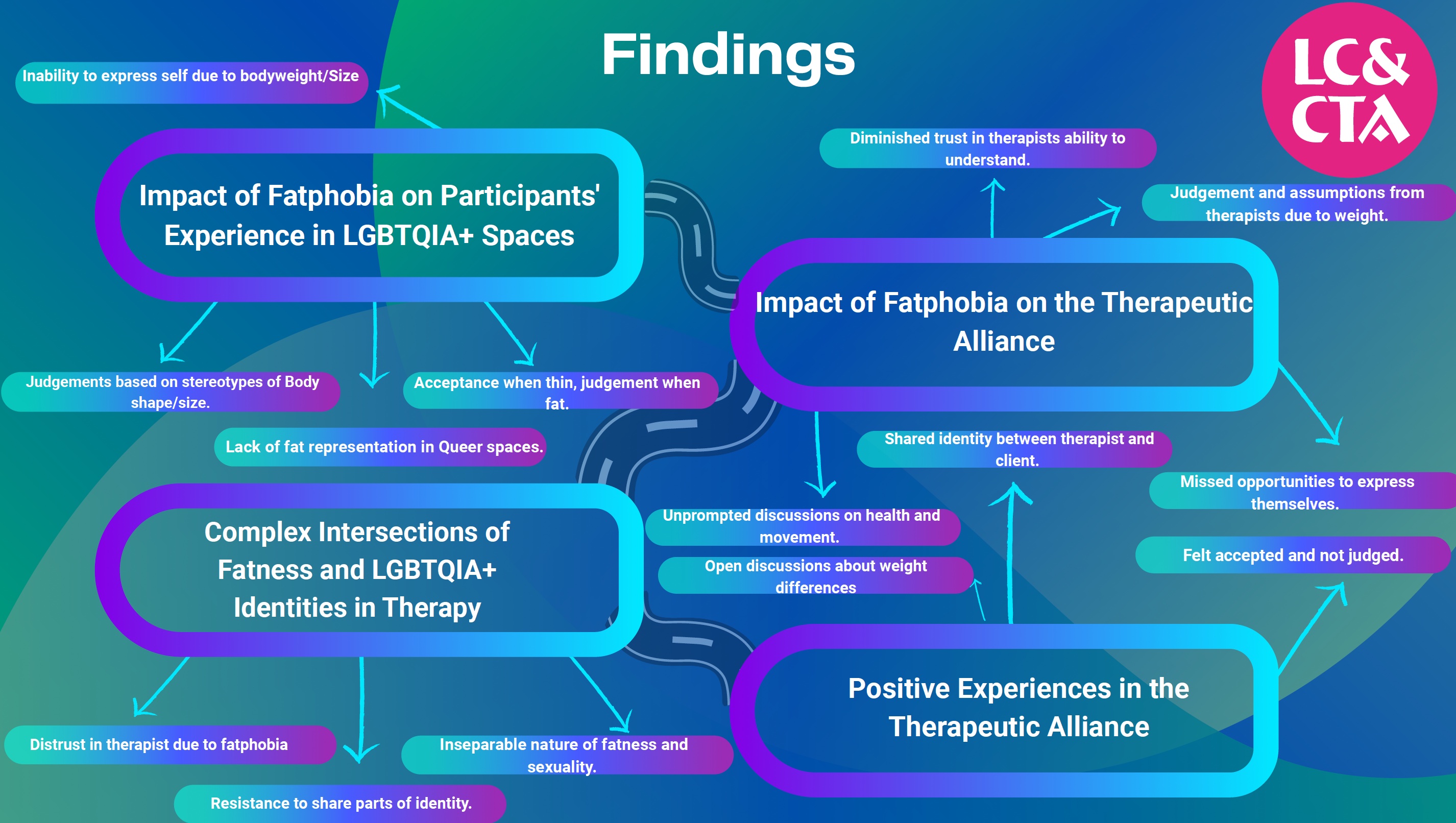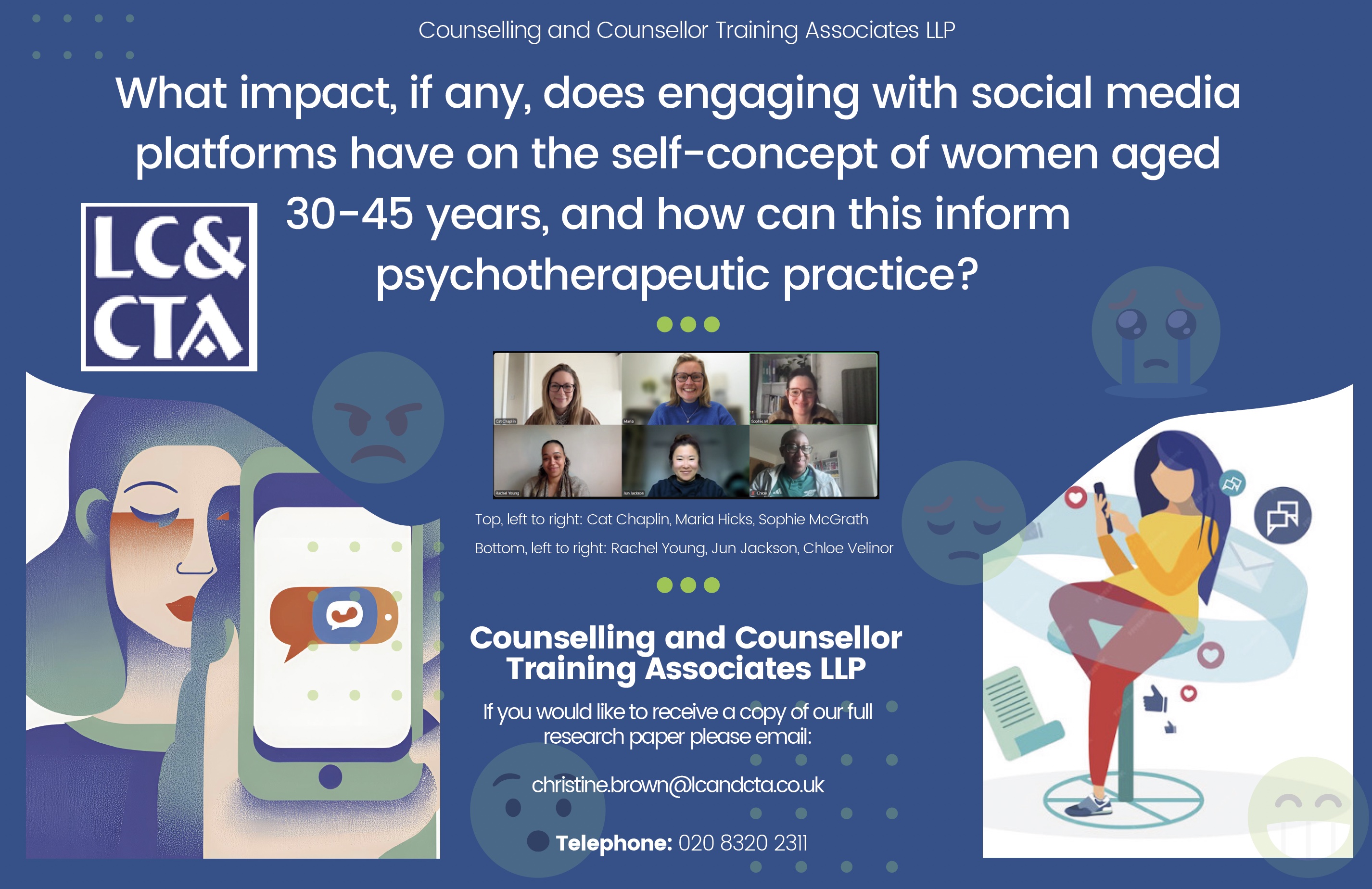2025 National Research Success
Conference 2025

This year our HPD students (pictured above with tutors, Tina Corcoran & Chris Brown) presented their successful Research Papers in Manchester at the BACP National Research Conference; three papers were presented (see below).
The European Association for Integrative Psychotherapy (EAIP) invited the members of the 'Fatphobia in the GLBTQ+ Community' Research Group to further publish their paper in the predacious Professional European magazine The European Journal for Qualitative Research in Psychotherapy: a huge accolade to the quality of our students' work and research findings!
However, LC&CTA extends its CONGRATULATIONS to all our successful students who qualify this year with a BACP Nationally Presented Research Paper on their CVs!
Fatphobia in the LGBTQIA Community


The Blitz in World War 2
“Has the trauma of individuals living through the Blitz in World War 2 had any generational impact on their children and grandchildren and, if so, how can this inform psychotherapeutic practice?”


Researchers & authors left to right: Fatema Alali / Jaqueline Summers / Elisabeth Lindley / Angela Jewell / Mark Wood
Overarching Findings
Based on the data drawn from our participants’ experiences, three overarching themes emerged illustrating the intergenerational impact of the WWII Blitz on individuals and their families:
- Psychological Effects: including anxiety and fear, a propensity towards stoicism, feelings of guilt, feeling unsettled, feeling lonely, feeling oppressed.
- Coping Strategies: silence and unspoken trauma, adapting a ‘move on’ mentality, and lack of communication.
- Impact on Parenting Style: overprotectiveness, emotional distance or overcompensation.
Conclusion
Combined, the above emergent themes appear to reflect the deep and lasting psychological impact of wartime experiences, shaping not only individual emotions and coping mechanisms but also intergenerational dynamics through parenting style/s rooted in war induced trauma.

Social Media Impact
“What impact, if any, does engaging with social media platforms have on the self-concept of women aged 30-45 years, and how can this inform psychotherapeutic practice?”

